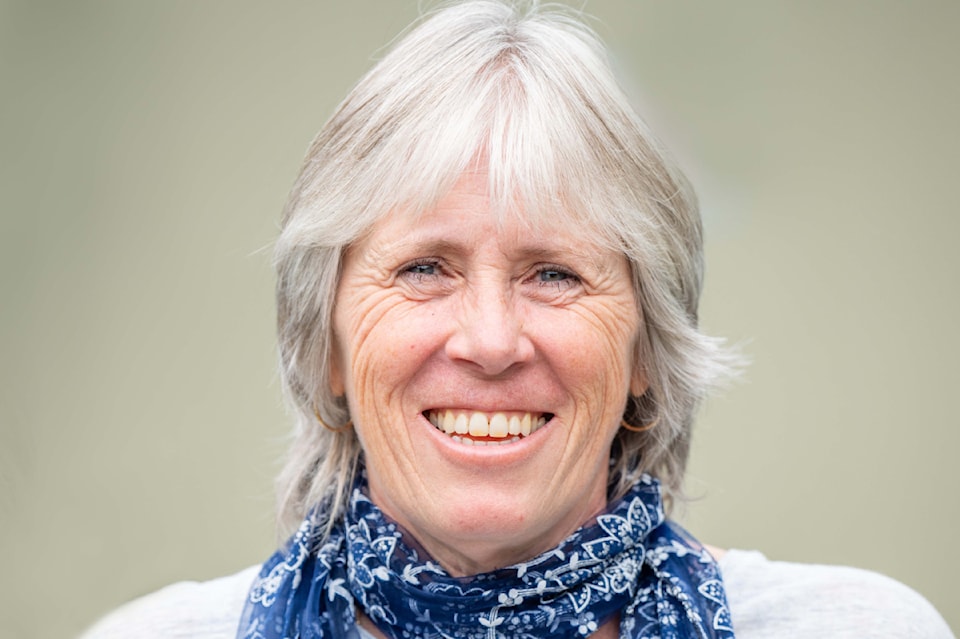Health
North Island Faces Health Challenges Despite Economic Progress

Health outcomes in North Island, located on Vancouver Island, remain concerning despite improvements in education and economic status. At a recent meeting on September 9, 2023, Dr. Charmaine Enns, the region’s Medical Health Officer, highlighted that many of these health issues are preventable or modifiable.
During her address to the Port Hardy councillors, Dr. Enns noted that the median household income in North Island increased from $57,000 in 2016 to $68,500 in 2021. Additionally, 65 percent of residents hold a post-secondary certificate, diploma, or degree, which exceeds the provincial average of 57 percent.
Despite these positive trends, the region’s life expectancy is only 75 years, significantly lower than the British Columbia (B.C.) average of 82 years and the Island average of 81 years. Dr. Enns attributed this disparity to various factors, including a notably higher incidence of motor vehicle accidents. North Islanders experience 3.9 times more deaths from these incidents compared to other residents on the Island.
In her presentation, Dr. Enns outlined a layered approach to reducing motor vehicle fatalities, emphasizing the need for improved road design, speed regulations, vehicle safety features, land use planning, and enhanced post-crash care. Communities that have implemented such measures have successfully reduced accidents and fatalities.
Alcohol consumption also poses a significant public health challenge in North Island. Residents consume an average of 16.8 drinks per week, compared to the B.C. average of 9.2 drinks and the Island average of 12.2 drinks. Smoking rates are concerning as well, with 7.7 percent of the population smoking daily. Notably, 14 percent of female smokers continue this habit during pregnancy, a figure that surpasses the Island average of 6.8 percent and the B.C. average of 4.1 percent.
Educational attainment is another area of concern. North Island’s high school completion rate is only 68 percent for 2023, significantly lower than the Island average of 86 percent and the B.C. average of 92 percent.
On a more positive note, Dr. Enns reported a decline in hospital admissions related to opioid use, which is currently below the Island average.
Dr. Enns emphasized that many of the troubling statistics, such as lower life expectancy, substance abuse, and low graduation rates, stem from preventable factors. “These trajectories can be reversed,” she stated, underscoring the importance of supporting early childhood development. This foundational support can help prevent negative health outcomes later in life.
For those interested in further details, the full presentation by Dr. Enns is available for viewing on the Port Hardy council’s YouTube channel, starting at the three-minute mark.
-

 Education3 months ago
Education3 months agoBrandon University’s Failed $5 Million Project Sparks Oversight Review
-

 Science4 months ago
Science4 months agoMicrosoft Confirms U.S. Law Overrules Canadian Data Sovereignty
-

 Lifestyle3 months ago
Lifestyle3 months agoWinnipeg Celebrates Culinary Creativity During Le Burger Week 2025
-

 Health4 months ago
Health4 months agoMontreal’s Groupe Marcelle Leads Canadian Cosmetic Industry Growth
-

 Technology3 months ago
Technology3 months agoDragon Ball: Sparking! Zero Launching on Switch and Switch 2 This November
-

 Science4 months ago
Science4 months agoTech Innovator Amandipp Singh Transforms Hiring for Disabled
-

 Education3 months ago
Education3 months agoRed River College Launches New Programs to Address Industry Needs
-

 Technology4 months ago
Technology4 months agoGoogle Pixel 10 Pro Fold Specs Unveiled Ahead of Launch
-

 Business3 months ago
Business3 months agoRocket Lab Reports Strong Q2 2025 Revenue Growth and Future Plans
-

 Technology2 months ago
Technology2 months agoDiscord Faces Serious Security Breach Affecting Millions
-

 Education3 months ago
Education3 months agoAlberta Teachers’ Strike: Potential Impacts on Students and Families
-

 Science3 months ago
Science3 months agoChina’s Wukong Spacesuit Sets New Standard for AI in Space
-

 Education3 months ago
Education3 months agoNew SĆIȺNEW̱ SṮEȽIṮḴEȽ Elementary Opens in Langford for 2025/2026 Year
-

 Technology4 months ago
Technology4 months agoWorld of Warcraft Players Buzz Over 19-Quest Bee Challenge
-

 Business4 months ago
Business4 months agoNew Estimates Reveal ChatGPT-5 Energy Use Could Soar
-

 Business3 months ago
Business3 months agoDawson City Residents Rally Around Buy Canadian Movement
-

 Business3 months ago
Business3 months agoBNA Brewing to Open New Bowling Alley in Downtown Penticton
-

 Technology2 months ago
Technology2 months agoHuawei MatePad 12X Redefines Tablet Experience for Professionals
-

 Technology4 months ago
Technology4 months agoFuture Entertainment Launches DDoD with Gameplay Trailer Showcase
-

 Technology4 months ago
Technology4 months agoGlobal Launch of Ragnarok M: Classic Set for September 3, 2025
-

 Technology4 months ago
Technology4 months agoInnovative 140W GaN Travel Adapter Combines Power and Convenience
-

 Science4 months ago
Science4 months agoXi Labs Innovates with New AI Operating System Set for 2025 Launch
-

 Top Stories2 months ago
Top Stories2 months agoBlue Jays Shift José Berríos to Bullpen Ahead of Playoffs
-

 Technology4 months ago
Technology4 months agoNew IDR01 Smart Ring Offers Advanced Sports Tracking for $169










